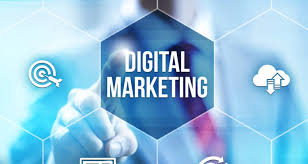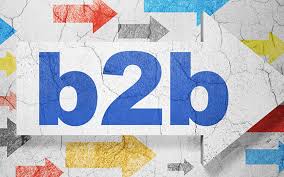Hello!
 Imagine if you didn’t have to spend a lot of time, money, and effort trying to reach them. Instead, a B2B client came to you. This is the core value proposition of inbound marketing.
Imagine if you didn’t have to spend a lot of time, money, and effort trying to reach them. Instead, a B2B client came to you. This is the core value proposition of inbound marketing.
B2B marketing is different from traditional outbound marketing strategies that rely on cold calls and paid advertising. Instead, it uses custom content (ranging from company blogs to social media posts) to attract targeted audiences and convert them into customers.
Inbound marketing B2B strategies are more magnetic than megaphones, more pull than push.
 It is designed to make something compelling that attracts customers’ attention as they are already on their journey.
It is designed to make something compelling that attracts customers’ attention as they are already on their journey.
This allows them to focus on the important things and not overwhelm them with outbound collateral. Inbound marketing is the conversion of tangential connections (e.g. visitors to a brand’s website) into customers who are happy to promote it. Inbound marketing follows a 4-stage process:
Inbound marketing, especially for B2B, is a cost-effective and reliable way to get a customer’s attention over the course of a long B2B sales cycle. Let’s look at the basics of B2B Inbound Marketing so you can create or refine your strategy.
B2B Marketing: What it is and how it works
B2B Inbound Marketing is a method of attracting customers to your business through a soft-touch, compelling content strategy. This replaces pushing out marketing messages via outbound channels. It is inviting, not interrupting.
A company’s website is the most important part of a B2B inbound strategy. These platforms are hubs for corporate audiences, and therefore powerful platforms for lead generation.
You might even say, “If you build it, they’ll come.”
Social media strategy and search engine optimization (SEO), are two of the practices that can create the “pull effect” of inbound marketing.
 How does B2B Inbound Marketing look in practice? Let’s look at HubSpot, the company almost synonymous with the term. The official blog of HubSpot is an invaluable resource for inbound marketers.
How does B2B Inbound Marketing look in practice? Let’s look at HubSpot, the company almost synonymous with the term. The official blog of HubSpot is an invaluable resource for inbound marketers.
It’s not only supercharged with SEO but also because it’s reliable and informative. This is a very special post on how to use Microsoft Excel’s Goal Seek function.
This post is informative, readable, and relevant. It has all the hallmarks for standout inbound content marketing.
With its leade about Goal Seek’s place in the audience’s future campaigns and projections, it conveys real value. HubSpot is not trying to sell you anything, but it is building trust and establishing itself as an expert business partner. This will make it more attractive to its customers.
Inbound marketing is based on customized content. This allows for a wider audience to be addressed than traditional outbound marketing channels like direct mail. Inbound also heavily leverages marketing automation tools, inbound marketing software, and SEO best practices.
We need to compare B2B outbound marketing’s most popular formats with its own.
 This will allow us to see the true impact of inbound marketing on B2B:
This will allow us to see the true impact of inbound marketing on B2B:
Types of Inbound Marketing
- White papers.
- SEO blog posts and landing pages.
- Social media updates.
- Email newsletters.
- Case studies.
Types of Outbound Marketing
- Pre-roll video ads.
- Telemarketing calls.
- Unsolicited emails.
- Pop-ups.
- Direct mail.
- Paid social media.
- Some display ads.
- Print ads.
What a B2B Marketing Strategy is Essential
 Okay, now we understand what B2B Inbound Marketing is. Let’s now answer the most frequently asked question: Why should inbound marketing be pursued?
Okay, now we understand what B2B Inbound Marketing is. Let’s now answer the most frequently asked question: Why should inbound marketing be pursued?
The simple answer is that people don’t like being interrupted by outbound advertising and inbound marketing is better. What about you? Have you ever had a pleasant experience when you received a cold call or clicked through a pop-up ad to purchase something?
Inbound marketing is more than just making it easier for customers. Let’s look at some major reasons that an inbound marketing strategy works better than outbound.
Reason No. 1: B2B Inbound Marketing Generates Higher-Quality Leads
 Inbound digital marketing channels are more likely to connect B2B buyers with you than outbound strategies. According to Search Engine Journal, inbound leads have a close rate of 14.6%, compared to just 1.7% for outbound leads.
Inbound digital marketing channels are more likely to connect B2B buyers with you than outbound strategies. According to Search Engine Journal, inbound leads have a close rate of 14.6%, compared to just 1.7% for outbound leads.
B2B marketers now place more importance on quality than quantity. Outbound B2B marketing is quantity-driven–it’s often just about working your way through a list of phone numbers or email addresses, trying to catch lightning in a bottle. Inbound marketing is all about quality. It involves attracting and nurturing an engaged audience.
Ascend2 found that 70% of B2B marketers cited “improve quality of leads” as their top priority. This is where inbound marketing excels.
Reason No 2: B2B Inbound Marketing Is More Cost-Effective
 Inbound digital marketing channels are more likely to connect B2B buyers with you than outbound strategies. According to Search Engine Journal, inbound leads have a close rate of 14.6%, compared to just 1.7% for outbound leads.
Inbound digital marketing channels are more likely to connect B2B buyers with you than outbound strategies. According to Search Engine Journal, inbound leads have a close rate of 14.6%, compared to just 1.7% for outbound leads.
B2B marketers now place more importance on quality than quantity. Outbound B2B marketing is quantity-driven–it’s often just about working your way through a list of phone numbers or email addresses, trying to catch lightning in a bottle. Inbound marketing is all about quality. It involves attracting and nurturing an engaged audience.
Ascend2 found that 70% of B2B marketers cited “improve quality of leads” as their top priority. This is where inbound marketing excels.
Reason No. 3: B2B Inbound Marketing Is Customer-Centric
 This brings us to the third reason why B2B marketing should be implemented: it puts customers and their needs first. B2B Inbound marketing is about educating customers and providing resources they can refer to during long sales cycles.
This brings us to the third reason why B2B marketing should be implemented: it puts customers and their needs first. B2B Inbound marketing is about educating customers and providing resources they can refer to during long sales cycles.
B2B buyers are more interested than B2C buyers in learning from potential business partners. They want to know all the benefits and risks of a product before they buy it. This is where outbound marketing doesn’t work as well. Inbound marketing is better suited for this purpose.
Your messages will be more credible and flexible if you communicate with prospects via an SEO blog, landing page, or email newsletter. Outbound marketing isn’t limited by time constraints, so you can focus on the specific needs of your customers.
4 Examples of B2B Inbound Marketing in the Real World
There are many kinds of B2B Inbound Marketing. How do you select the right one for your company? Let’s look at some examples to show you what’s possible.
Atlassian’s Teamistry Podcast
 Inbound marketing allows marketers to do anything that will convert prospects and attract them. Instead of spending money to display ads that are identical to others, a B2B company might produce custom content marketing such as podcasting.
Inbound marketing allows marketers to do anything that will convert prospects and attract them. Instead of spending money to display ads that are identical to others, a B2B company might produce custom content marketing such as podcasting.
These types of possibilities are showcased by Atlassian, a B2B software vendor. The Chemistry podcast, a seasonally produced series that highlights legendary team efforts, features episodes about events such as how IBM adapted to the internet’s initial growth.
It works better than inboundThis podcast series engages customers for 30 minutes, while a display advertisement for Atlassian may catch their attention for a moment. They can learn more about Atlassian’s worldview and its values, which is something that outbound materials don’t have as much space for.
ServiceNow Case Studies
 ServiceNow, a workflow automation provider, has published many case studies on its main website. These cases show how its software has helped its B2B customers. This case study format is ideal for inbound marketing because it shows rather than tells. The brand is shown to the reader, demonstrating its value.
ServiceNow, a workflow automation provider, has published many case studies on its main website. These cases show how its software has helped its B2B customers. This case study format is ideal for inbound marketing because it shows rather than tells. The brand is shown to the reader, demonstrating its value.
The headline and statistics are a great combination to provide a quick overview of the case study before the text begins. To move the reader’s attention further down the sales funnel, there are strategically placed “contact” or “demo” buttons.
It works better than inboundCold calling a company to sell workflow automation software is a difficult task. Given the complexity of the products or services, it would take many calls before you see success. Inbound case studies, on the other hand, make the value proposition more clear and easy for customers to understand.
The SEO Blog of Upflow
 Upflow, a B2B payments startup, has a blog that is well-designed and caters to businesses looking to collect more customer payments. This post is SEO-friendly and easy to understand. The subhead question has a clear answer and bullet points are used to make it easy to read. There are also explanations of industry acronyms throughout.
Upflow, a B2B payments startup, has a blog that is well-designed and caters to businesses looking to collect more customer payments. This post is SEO-friendly and easy to understand. The subhead question has a clear answer and bullet points are used to make it easy to read. There are also explanations of industry acronyms throughout.
It works better than inbound flow shows its deep understanding of its audience and gives them expert advice about what to do. This content marketing approach is more complex than the “try Upflow, our best at collecting payments from B2B” pitch.
How can you optimize your inbound marketing performance?
Three steps are required to get the best out of an inbound marketing campaign:
- Optimizing your website.
- Tracking and acting on key performance indicators (KPIs).
- Promoting your inbound content.
Let’s look at each one individually.
Optimizing Your Website
 SEO is the cornerstone of the inbound market. Inbound marketing must be effective:
SEO is the cornerstone of the inbound market. Inbound marketing must be effective:
- You should focus on both on-page as well as off-page SEO. By enhancing your internal linking strategy.
- Optimize every blog post and another asset to include a longtail keyword.
- Include pertinent CTAs at or near the end of your asset.
Buyer personas, which are research-based fictional representations of ideal customers, really help to shape the length, tone, and content of your inbound marketing assets. Inbound marketing is not the same as outbound marketing, which tends to be a one-size-fits-all approach. It is important to create buyer personas to target and send targeted messaging.
Monitoring and acting on KPIs
There are many KPIs that you can use to track inbound marketing. These KPIs can help you determine if your efforts have been successful and where they need improvement. Marketing automation tools are a great way to keep track of these KPIs and take corrective actions as necessary. They can help you track leads, integrate with CRMs, and scale your email marketing.
 One of these marketing automation tools, Marketo, recommends the following KPIs as guideposts for inbound marketing:
One of these marketing automation tools, Marketo, recommends the following KPIs as guideposts for inbound marketing:
- Social media engagement.
- Organic site traffic is growing month-over-month.
- Lead generation by channel and content type
- Percentage of leads coming from inbound sources
- Forecasted conversion via Inbound
Promoting Your Inbound Content
 B2B marketing is not meant to be a heavy-handed outbound digital marketing approach. However, it does not mean that there is no need for content promotion.
B2B marketing is not meant to be a heavy-handed outbound digital marketing approach. However, it does not mean that there is no need for content promotion.
Email and social media are often the biggest inbound marketing assets.
Marketing automation tools should be able to cross-post to multiple social channels and make it easier to add images to posts. For email, so much depends on the subject line, the introduction, the CTA, and–pivotally–whether the message will go into “Promotions” limbo in Gmail or be caught by the somewhat aggressive spam filter in the Apple Mail client.
Inbound marketing is more effective than traditional marketing because it generates more leads over time.
Also read:
- Europe Tightens Crypto Control with New AMLA Rules!
- Professions That Remain AI-Proof: The Power of Human Connection, Decision-Making, and Practical Skills
- Facebook Is Being Flooded With Gross AI-Generated Images of Hurricane Helene Devastation
Thank you!
Subscribe to our newsletter! Join us on social networks!
See you!






